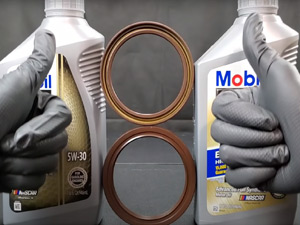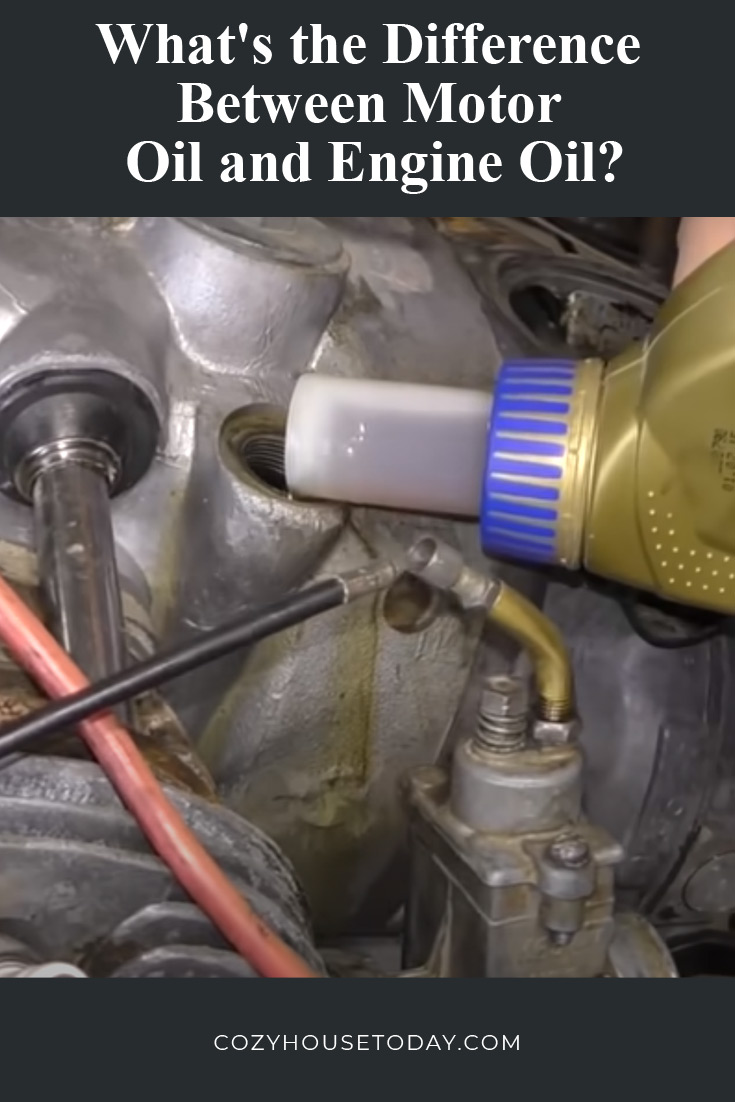 Many people are unsure about the difference between motor oil and engine oil, but they are quite different. Motor oil is designed to lubricate parts of an engine that rotate at high speeds; whereas, engine oils lubricate parts of an engine that rotate more slowly. It may seem like a small distinction, but it can make a big difference in your car’s performance!
Many people are unsure about the difference between motor oil and engine oil, but they are quite different. Motor oil is designed to lubricate parts of an engine that rotate at high speeds; whereas, engine oils lubricate parts of an engine that rotate more slowly. It may seem like a small distinction, but it can make a big difference in your car’s performance!
In this article, we will discuss some of the differences between these two types of oils and how they differ from each other in terms of usage.
Are engine oil and motor oil the same thing ?

The term engine refers to the machinery of a motor vehicle. The engine is what enables the vehicle to move and it consists of a crankcase, pistons, connecting rods, and valves. It also includes an oil pump and oil pan and it operates with raw fuel and air. On the other hand, when you talk about motor oil or lubricants, then this is used for all types of engines whether they are electric or gas-powered.
Many people think that “engine oil” and “motor oil” are the same things. There is a huge difference between motor oils and engine oils. For example, if you drive a diesel car or truck, it needs an engine oil specifically designed for those vehicles to run smoothly.
This type of specialized engineering means that your vehicle will spend less time in the shop getting fixed because it won’t have any problems with its mechanical parts or bearings wearing down too quickly from using a poor-quality product.
Motor oil and engine oils are different things because they’re made specifically for each type of machine! Just like how when you buy chocolate syrup it can’t always be used like maple syrup even if they both look similar; that’s exactly the case here too. Don’t mix them together-ever!
You should also never use one product where another was called out by your vehicle manufacturer. It will cause problems over time which could result in damage to parts inside your car so make sure you know what kind of oil you need.
Can I Put Motor Oil in My Engine?

Not really. You can use motor oil in your engine. However, since most people don’t know the difference between engine oils and motor oils they often buy an off-brand or low-quality product that doesn’t meet all of their needs. For example, if you put heavyweight oil into your car’s engine when it requires light viscosity lubricants then this will cause problems for sure.
Engine oil and motor oils are not interchangeable with each other. They may look the same and they both lubricate parts in your car, but that’s where the similarities end.
How Many Types of Engine Oil Are There?
This is a great question! The answer is that there are many different types of engine oil, each with its specific use case. To begin, you should know that they fall into four major categories which include:
– SAE 30 light viscosity oil
– SAE 40 medium viscosity oil
– SAE 50 heavy viscosity oil (some people refer to this as summerweight)
– SAE 60 extra heavyweight or winterweight lubricant
People tend to get confused when they buy motor oil for their car because many products just label themselves “motor” instead of using the proper terminology. However, if you’re someone who wants a good product that will last and do what it is supposed to then there’s no need to worry anymore!

Just look for something that says it meets your vehicle’s owner manual requirements and you’ll be good to go. If it says “engine” on the bottle, then this is probably not what your mechanic told you or what someone with more experience in vehicles would recommend for optimal performance.
Synthetic Oil
There are two main types of engine oil: conventional and synthetic. Generally speaking (but not always!), conventional oils tend to be less expensive compared to their synthetically made counterparts, but there may also be a few other differences between them as well. For example, many people feel that synthetic products last longer because they flow better at low temperatures which means you’ll use it more sparingly over time as the product gets used up in your vehicle’s motor parts.
In addition, some cars don’t run smoothly on certain kinds of motor oil so these inferior products can cause damage faster than normal if this is the case for your specific car or truck! On the flip side though, synthetic oils have been known to cost significantly more for the same quantity.
The benefit of using synthetic oil is that it will not cause more wear on your engine. Synthetic oil is good for all seasons, too. The only time that you should use the semi-synthetic type of oil is if you drive your car off-road, like in dusty conditions or snowstorms.

In addition, a lot of people have become more aware of the environment and don’t want to use products that are so heavily reliant on non-renewable resources.
If you’re looking for something eco-friendlier or perhaps just better overall, then this is where synthetic oil comes into play! Unlike mineral oils, these types of motor oil require technology involving chemicals to produce them.
They also tend to last much longer than traditional lubricants do but they will cost slightly more too due to their complicated production methodologies. That being said though, if your car’s engine has been running fine with mineral type products up until now then there’s no reason why should stop working because you switch over
Mineral Oil

Mineral oil is the oldest type of engine oil. It has been around for centuries and can be seen in many products today. Mineral oils are typically much cheaper than other types of engine oils, but this does not mean that they are better. Natural parts like shale can be found to refine it, but synthetics are now gaining popularity as well because of the benefits they bring like higher quality and lasting longer.
Mineral oil is the most commonly used product to lubricate your car’s engine parts. It works well for almost any situation, it’s cheap and you can pick up a jug of this stuff at practically every store!
Semi-Synthetic Oil
Semi-synthetic oil is a blend of conventional and synthetic oils. It’s more expensive than mineral oil but it has some benefits over straight-up petroleum lubricants as well. For example, semi-synthetics can flow faster at low temperatures which means they won’t gunk up your engine – this makes them great for very cold weather!
They are also good if you want an environmentally friendly product that will last longer inside your car or truck parts too.
Semi-synthetic oils are compatible with catalytic converters and will not damage your engine like synthetic oils. The only downside is that they’re more expensive than mineral oil.
High-Mileage Oil
High-mileage oil is meant for older vehicles with over 75,000 miles on the odometer. It has different additives than regular oils do so it can accommodate engines that have high mileage without causing damage to them.

For example, some of these products will include seal conditioners which are molecules that help keep components like your engine’s pistons from sealing too tightly – this prevents pressure build-up and consequently makes it easier on your car or truck parts!
Many people who drive their cars into “high mileage” territory might see a drop in performance because of all the wear and tear they’ve accumulated through the years. To prevent this, you should use high-mileage motor oils! These types of lubricants are specifically designed for older vehicles with high mileage so you’ll likely see a smoother ride as well as an improvement in your car’s performance.
Can I just pour more oil into my car?
No, don’t do that! Engine oils are not the same as motor oils and they can damage your vehicle’s components if you give it something it doesn’t need.
If your vehicle needs more engine oil, then it’s time to go see a mechanic is in order because this definitely won’t work outpouring in an inappropriate product could even cause more harm than good! Don’t take any chances when it comes to your car or truck parts. Your vehicle will not appreciate that.

How long can motor oil sit in an engine?
This one is important and it depends on the type of oil you’re using. Mineral oils can sit in an engine for about a year, while semi-synthetic types should be replaced after two years. High-mileage motor oil lasts three years before it’s no longer effective at lubricating your vehicle’s parts!
The age of your car or truck plays a big role when determining how long its engine oil will last inside components like pistons and cylinders – older vehicles need more frequent changes to their motor oils than newer ones do because they’ve been worn down over time.
If your vehicle has high mileage, then consider changing out the product every six months for maximum protection against wear and tear that could shorten the lifespan of some vital components.
Conclusion
The engine oil is made up of a mixture of base oils that have been blended to produce specific properties. And the best way to take care of your car or truck is by changing out its motor oil regularly and only using the correct type specified for it, not just any old product you buy at the store!

If you are unsure about what kind of vehicle-specific oil goes in your next purchase, contact specialists.
It is important to know the difference between engine oils and motor oils so you can make sure to pick out the right one for your vehicle based on its specifications or requirements. The last thing you want is to cause damage to your precious automobile by using a low-quality product!
So why take chances? Get started now learning more about how different kinds of oil work together within an engine system for optimal performance.
I hope I helped you to understand the difference between motor oil vs engine oil today with this post. If not, then let me know in the comments below if I can answer anything else for you about it!
